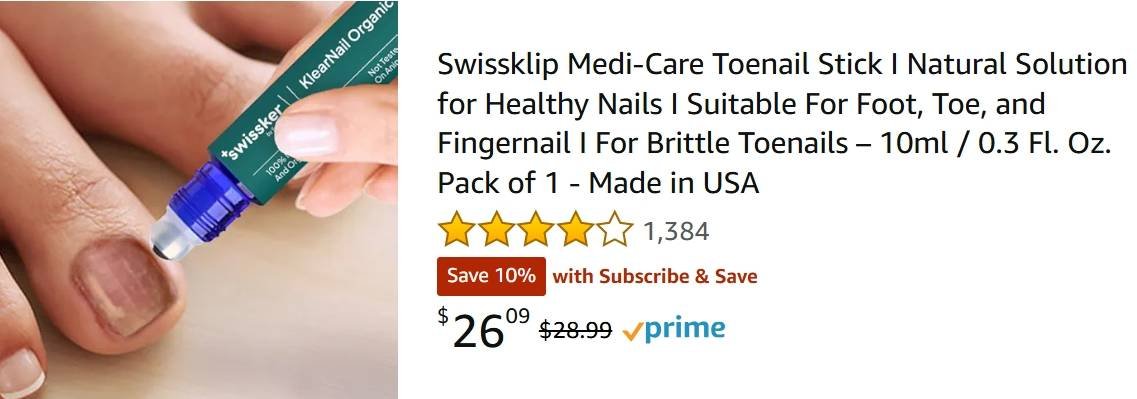Does Medicare Cover Laser Treatment For Toenail Fungus?
Find a Podiatrist Near You
Get same-day appointments with verified podiatrists. Insurance accepted.
Key takeaways:
- Medicare coverage for laser treatment for toenail fungus is limited and may require meeting certain criteria.
- Medicare Part B may cover laser treatment if it is deemed medically necessary and performed by a qualified healthcare professional.
- Medicare Part D may cover prescription medications used in the treatment of toenail fungus.
- It is important to consult with your healthcare provider and Medicare to determine coverage for laser treatment for toenail fungus.
Medicare is a federal health insurance program in the United States that provides coverage for healthcare services for people who are 65 and older, as well as for certain younger individuals with disabilities. While Medicare generally provides coverage for a wide range of medical services, there may be certain limitations and criteria for specific treatments and procedures. One such treatment that individuals may wonder about is laser treatment for toenail fungus.
Does Medicare cover laser treatment for toenail fungus?
Medicare coverage for laser treatment for toenail fungus is limited. Whether or not Medicare will cover this treatment depends on several factors, including the specific type of Medicare coverage you have and the medical necessity of the treatment.
In the YouTube video above “Why Toenail Fungus Laser Treatment Is Not Covered By Insurances?” (published about six months ago), the presenter dives into why most insurance providers don’t cover laser therapy for toenail fungus. The video explains classification challenges, reimbursement hurdles, and offers insights on out-of-pocket costs versus expectations.
Medicare Part B coverage for laser treatment
Medicare Part B is the portion of Medicare that covers outpatient services, including doctor visits, preventive care, and medically necessary treatments. If laser treatment for toenail fungus is deemed medically necessary by your healthcare provider, Medicare Part B may provide coverage. However, it is important to note that Medicare does not cover treatments that are purely cosmetic in nature.
To determine whether laser treatment for toenail fungus is medically necessary, Medicare will rely on a variety of factors, including your overall health condition, the severity of your toenail fungus, and the effectiveness of other treatments you may have tried. Your healthcare provider will need to document and justify the medical necessity of the laser treatment in order for it to be covered by Medicare Part B.
Medicare Part D coverage for prescription medications
While Medicare Part B may cover the actual laser treatment procedure, Medicare Part D may provide coverage for prescription medications used in the treatment of toenail fungus. Treating toenail fungus often involves a combination of therapies, including topical and oral medications. Medicare Part D plans typically cover prescription drugs, and there are a variety of medications available for the treatment of toenail fungus that may be covered by Medicare Part D.
It is important to review your specific Medicare Part D plan to determine coverage for prescription medications used in the treatment of toenail fungus. Some plans may require prior authorization or have restrictions on the type or brand of medication that is covered. Your healthcare provider can work with you to determine the most appropriate medication for your condition that is covered by your Medicare Part D plan.
Consulting with your healthcare provider and Medicare
If you are considering laser treatment for toenail fungus and are covered by Medicare, it is important to consult with your healthcare provider and Medicare to determine coverage. Your healthcare provider can assess the medical necessity of the treatment and provide documentation to support coverage. Additionally, contacting Medicare directly can help you understand the specific coverage criteria and requirements for laser treatment for toenail fungus under your Medicare plan.
It is also important to keep in mind that Medicare coverage can vary depending on your location and specific plan. You may need to contact your Medicare plan directly to obtain information about coverage for laser treatment for toenail fungus in your area.
Frequently Asked Questions
Q: How effective is laser treatment for toenail fungus?
A: Laser treatment for toenail fungus has shown varying degrees of effectiveness. It is important to consult with your healthcare provider to determine if this treatment is appropriate for your specific condition.
Q: Are there any side effects of laser treatment for toenail fungus?
A: While laser treatment for toenail fungus is generally considered safe, there can be some side effects such as redness, swelling, and temporary discomfort. Your healthcare provider can discuss potential side effects and risks associated with this treatment option.
Q: Are there alternative treatments for toenail fungus that Medicare covers?
A: Yes, Medicare may cover alternative treatments such as oral and topical medications for toenail fungus. Consult with your healthcare provider and Medicare to determine coverage for alternative treatments.
Sources:
Ready to See a Podiatrist?
Connect with top-rated podiatrists in your area. Book appointments instantly with verified doctors who accept your insurance.
Same-Day Appointments
Get seen today with urgent care availability
Verified Reviews
Real patient reviews and ratings
Insurance Accepted
Most major insurance plans covered
